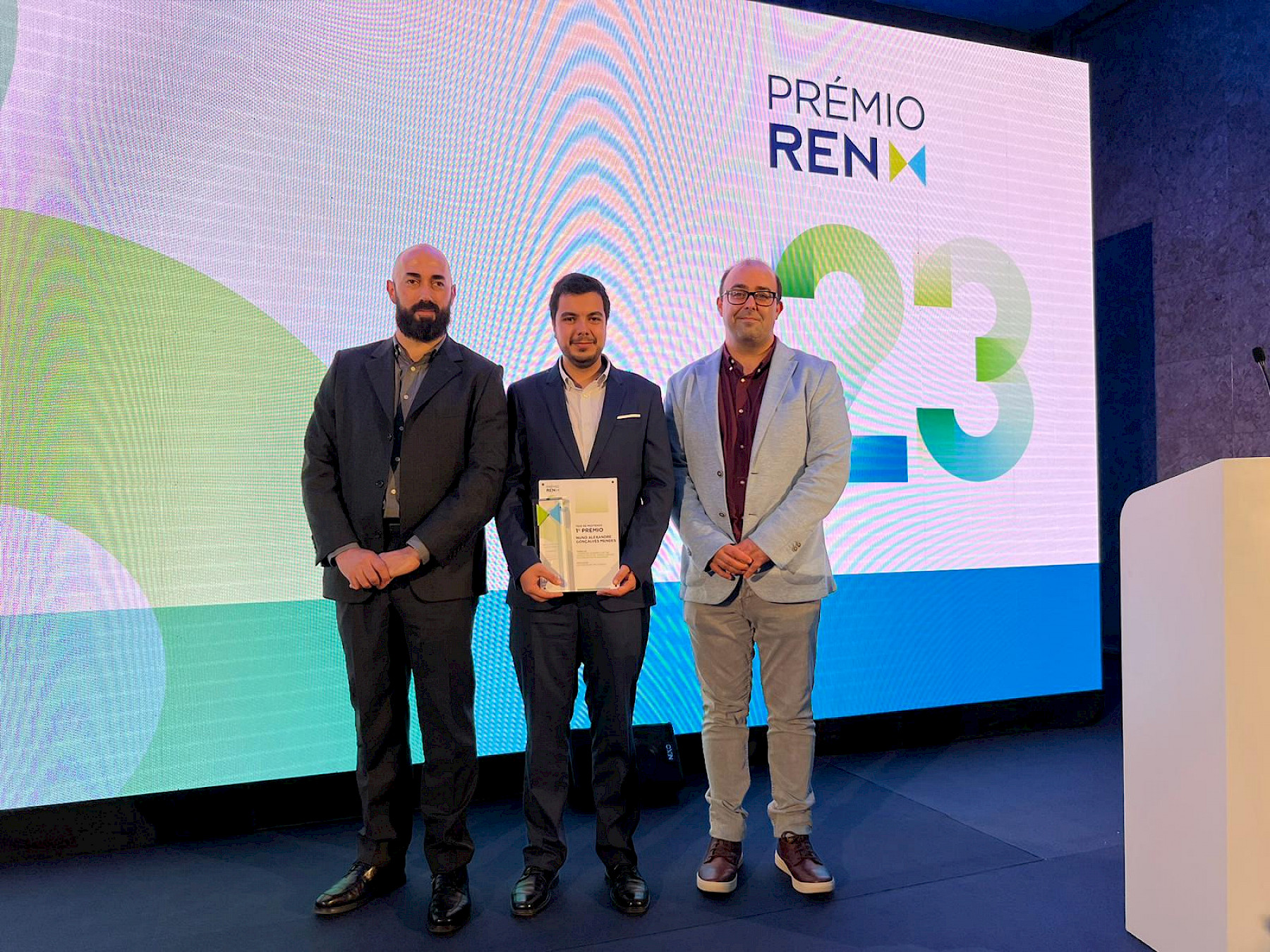University of Coimbra Master's thesis wins REN Award
Nuno Alexandre Gonçalves Mendes, student at the UC Department of Electrical and Computer Engineering is the winner of the 2023 edition of the REN Award.
Abridged version in English: Diana Taborda
Nuno Alexandre Gonçalves Mendes, a student at the Department of Electrical and Computer Engineering (DEEC) of the Faculty of Sciences and Technology of the University of Coimbra (FCTUC), is the winner of the 2023 REN Award. The prize-giving ceremony took place on the 13th of November in Lisbon.
The winning thesis, "Federated Learning for the Prediction of Net Energy Demand in Communities of Buildings", was developed as part of the Master's programme in Electrical and Computer Engineering, and also as part of the ML@GridEdge project led by the Institute for Systems and Robotics (ISR-DEEC) and the University of Texas at Austin.
During this master's programme, the now doctoral student in Electrical and Intelligent Systems Engineering at DEEC was supervised by Pedro Moura, DEEC professor, and Jérôme Mendes, researcher at the FCTUC's Department of Mechanical Engineering (DEM).
The dissertation presents a "new approach to net energy prediction in energy communities based on a Federated Learning (FL) system. The structure implemented includes the integration of third-party data providers, and two forecast systems (one for generation and the other for demand), both managed by the same server, making it possible to ensure the forecasting of net energy demand, independently, in each of the buildings belonging to the energy community," explains the prize winner.
Transactive Energy (TE) communities represent a shift away from traditional, centralised energy systems towards more distributed and adaptive models. These communities aim to empower energy consumers, promote sustainability and improve the overall efficiency of energy systems, relying on economic and control mechanisms to manage consumption and generation by enabling end-use energy trading. The implementation of successful transactive energy communities requires strategies where net energy demand prediction is the key to achieving better performance levels of control systems.
Created in 1995, the REN Prize is awarded each year to the best master's theses in the field of energy developed in Portuguese universities.

